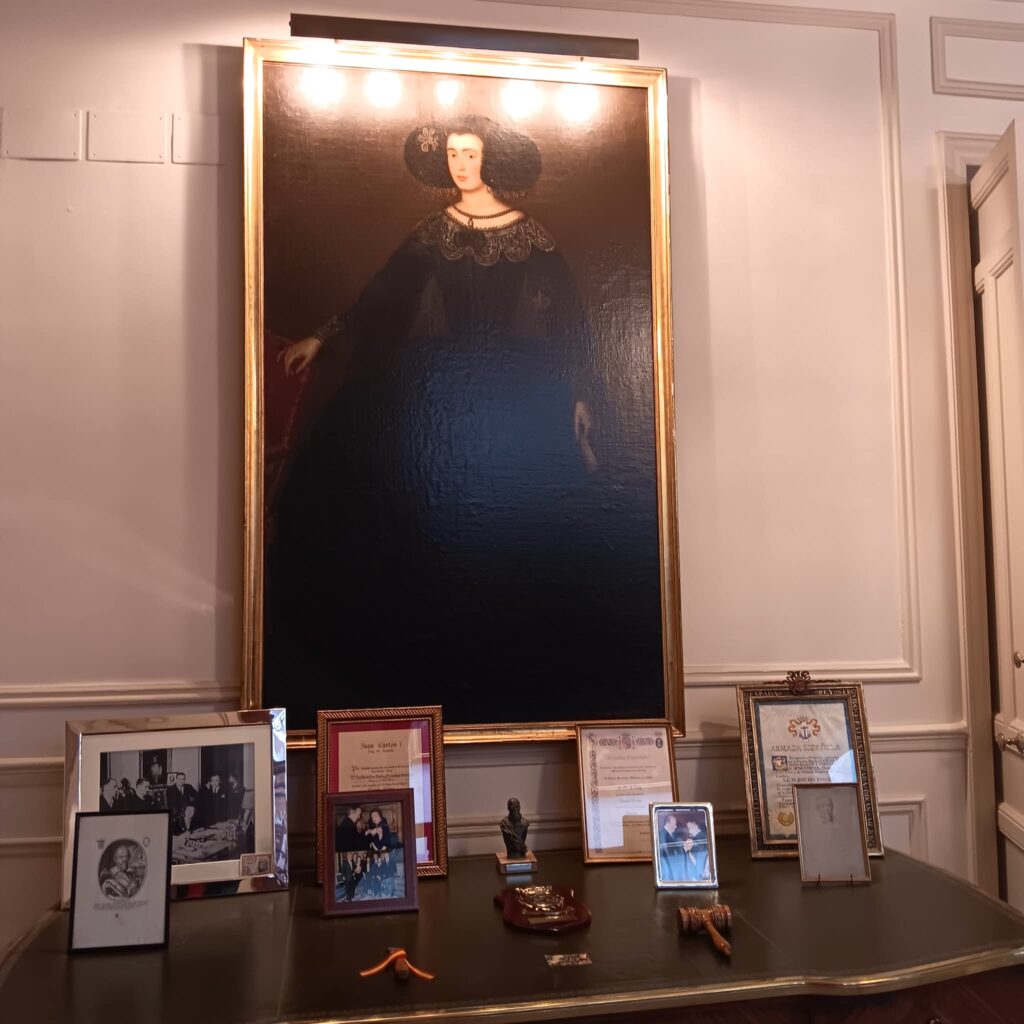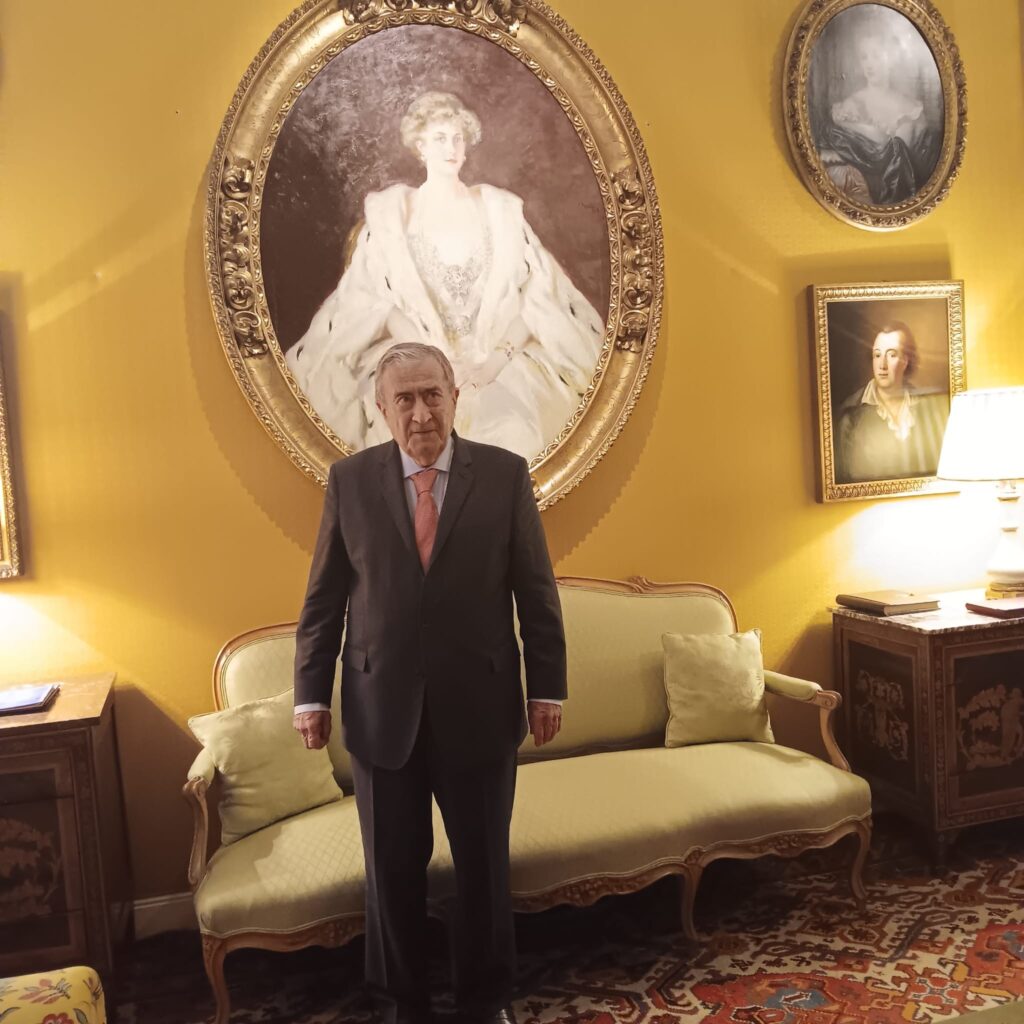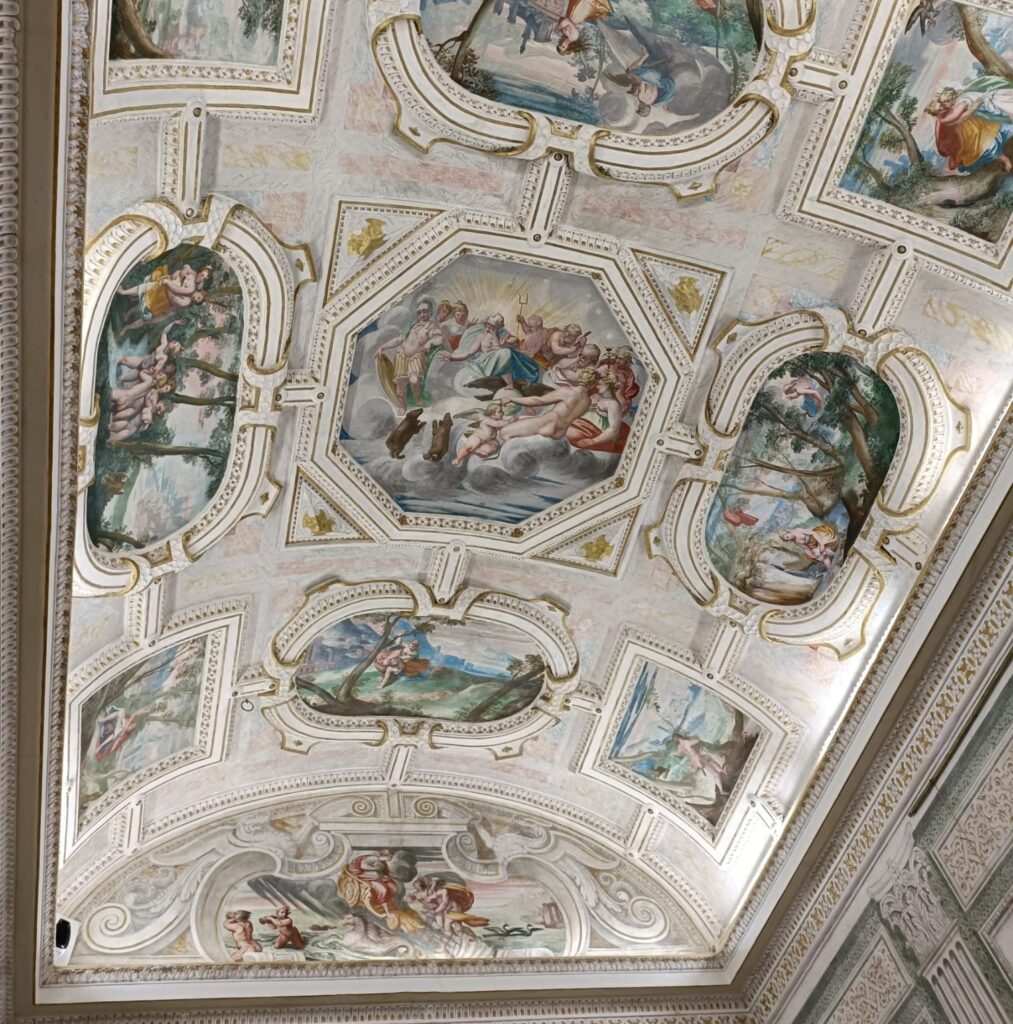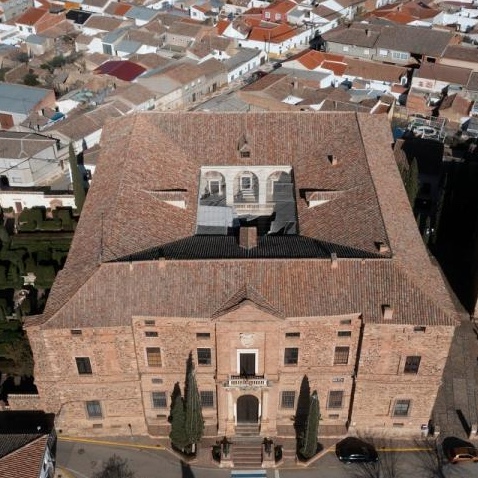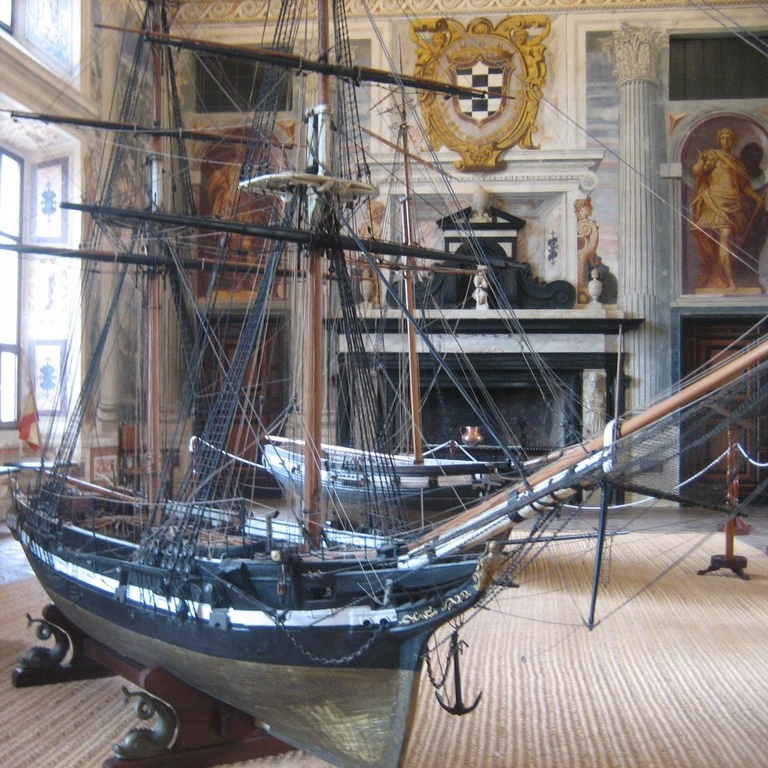FHB interview with EXCMO SR. D. ÁLVARO FERNÁNDEZ-VILLAVERDE Y SILVA, MARQUÉS DE SANTA CRUZ, Honorary Vice-President of the Fundación Hispano Británica
Few interviewees have such a long family history going all the way back to the 16th century. In fact, if you were to ask Google about the Marqueses de Santa Cruz you would get a string of references dating back to 1576, although very few – practically none – on the current Marquis, who I understand particularly values discretion… a centuries-long burden he bears with responsibility and a good sense of humour. Above all, Álvaro Fernández Villaverde y Silva, 15th Marquis of Santa Cruz and 14th Duke of San Carlos, considers himself to be an extremely lucky person.
ISABEL AIZPÚN
(Translated by ALEX HOSSBACH)
February 2024
You’ve told us that your main concern at the moment is to prepare for the handover of the entire family legacy over to your son.
Typically for someone my age, my main project at the moment is to prepare my son to take over my current responsibilities as Marquis and get everything in order. I suppose it’s all about adapting to the times. The 15 previous marquises did very different things to what I ended up doing and had very different ideas to those I do – and vastly different to those of my son. As a father, I have to respect his wishes as long as our family legacy is upheld because ultimately, he is going to have to think about what he is going to do in several decades time. That is my main purpose at the moment and I have been very lucky with the son I’ve had.
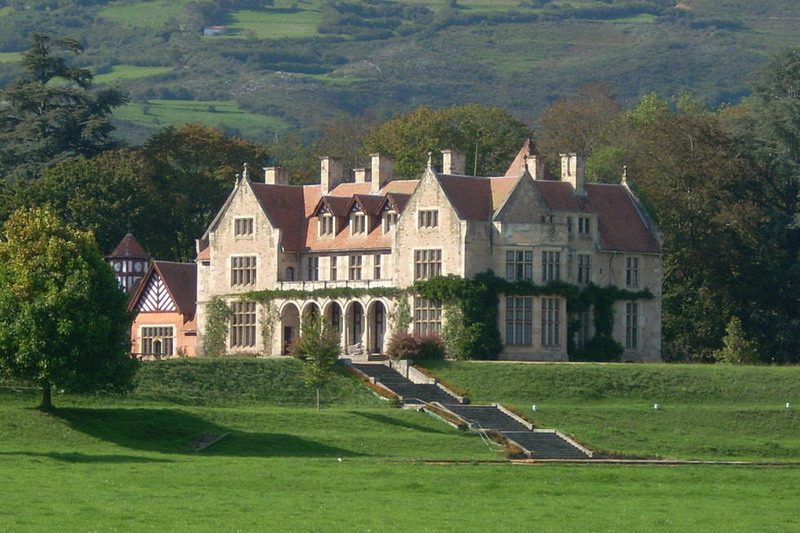
In 2001 it was the setting for Alejandro Amenábar’s award-winning film “The others”
Have you encountered any problems in managing such a large heritage, with a Palace-House in Madrid, another in Cantabria – built by an English architect – the Palace of the Dukes of San Carlos in Trujillo…?
Our legislation here in Spain are not particularly favourable to private support, to private heritage. In other countries such as the United Kingdom, France or Italy, it has been the left-wing parties which have actually promoted fiscal legislation in favour of the protection of the UK’s private heritage, which is preserved and opened for the benefit of the general public. The left here in Spain takes a different approach and is afraid it will look as if they are protecting their friends.
I must admit that, exceptionally, about a year ago the Madrid regional government launched a public competition to grant aid for cultural assets, which we were lucky enough to receive. However, as often happens in our country, everything is currently stalled because a year and a half later and having already received the money, we are still waiting for permission from the Town Hall to start our planned works.
One should bear in mind that it’s the Napoleonic Code which governs inheritance laws in Spain. These systems are not favourable to the maintenance and conservation of private inherited cultural heritage. It isn’t a question of paying taxes or not, but rather of ensuring our heritage isn’t dispersed. This is what the law establishes and why when I am asked what this palace contains, I say that it is what remains of several generations worth of inheritances.

A palace dating back to the 17th century, with a soon to be repaired façade and an important art collection with works by Goya, Carreño, Urgel, Madrazo, Sorolla, the Farolas de Lepanto, no less…
That’s right, to prevent this dispersion from happening again with each generation, my mother set up a Foundation which now owns much of the artwork and which I preside.
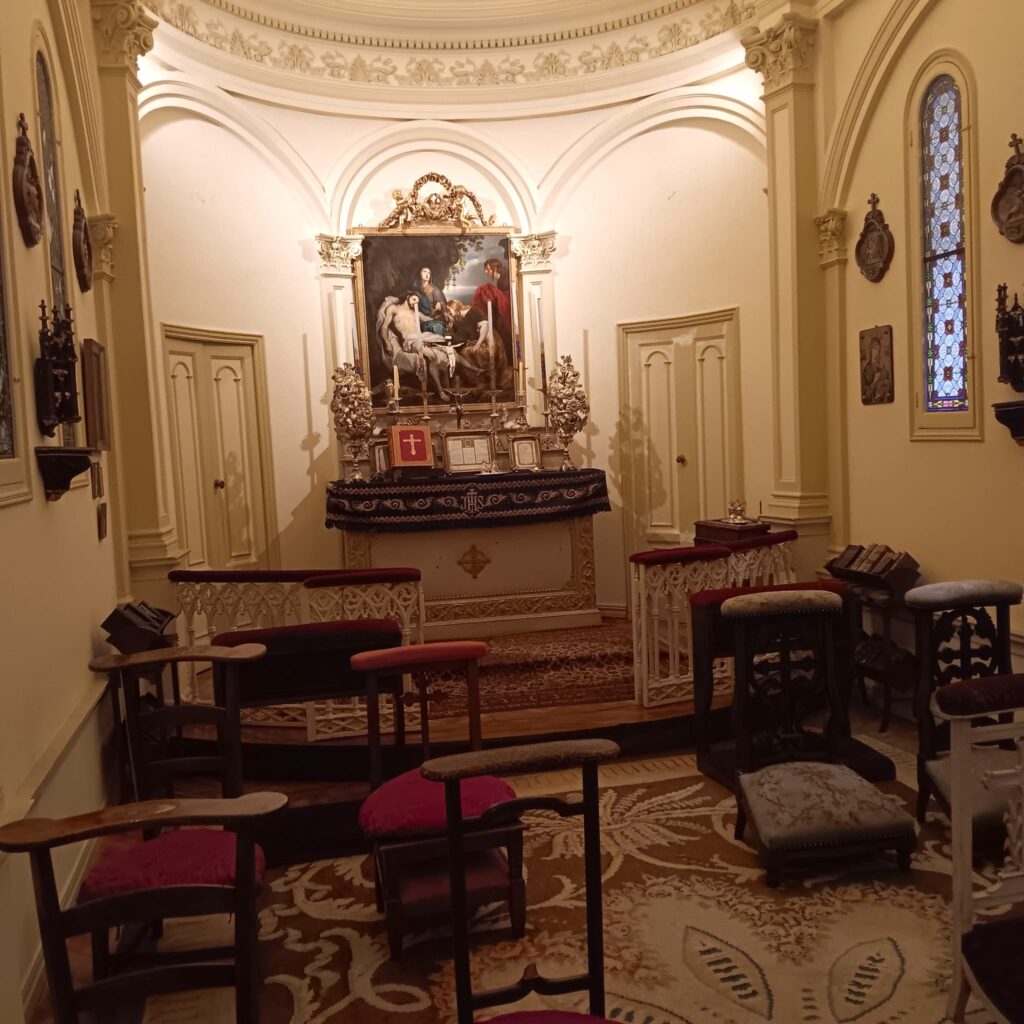
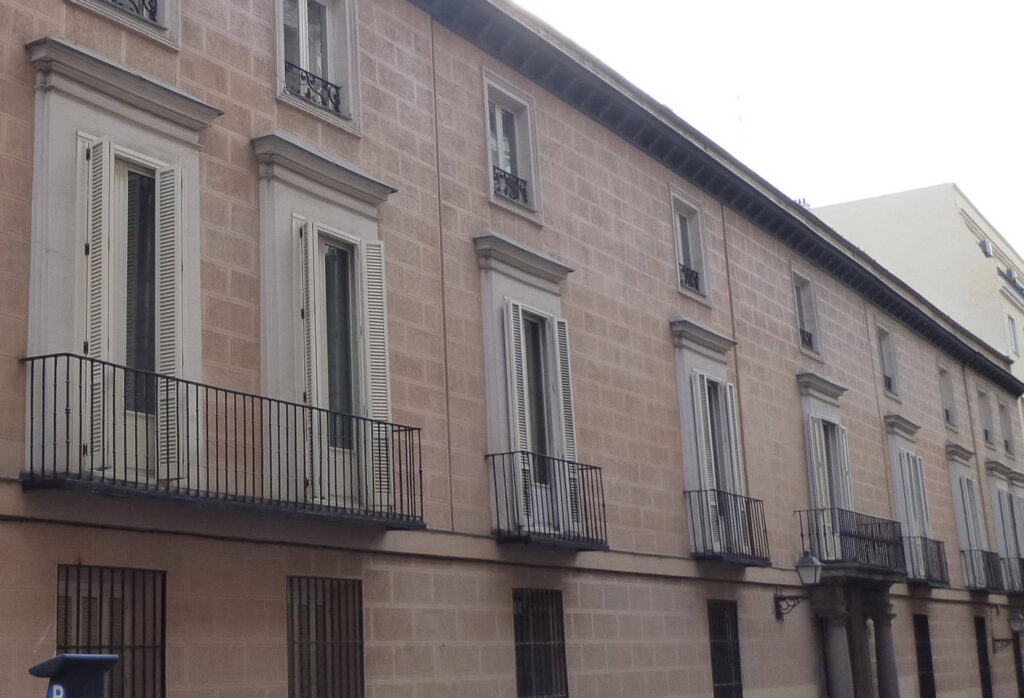
Palace of the Marquis of Santa Cruz (Madrid)
site of the Fundación Don Álvaro de Bazán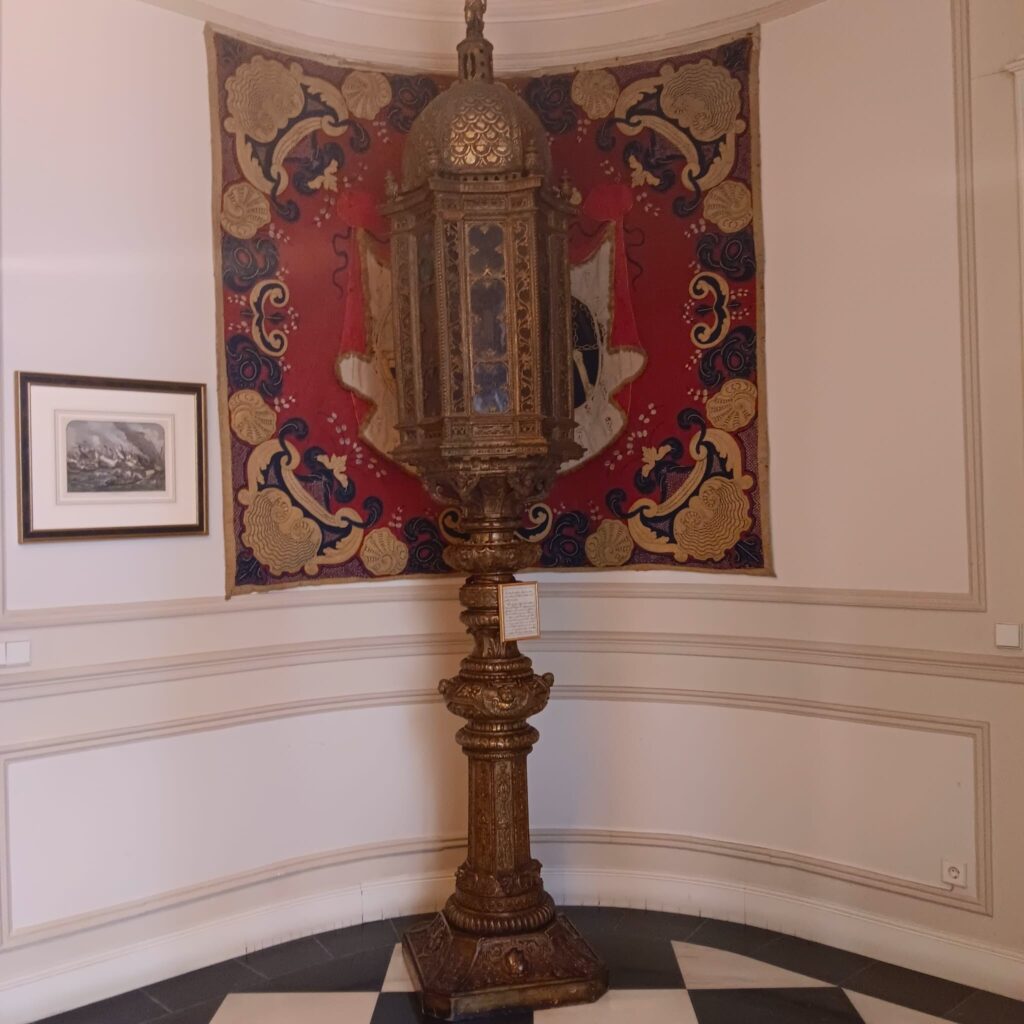
From this very palace we can take a look back on your own career. A relatively discreet, but impressive career indeed. You have certainly not been idle! From Spanish diplomat, president of your family’s Foundation or patron of the Naval Museum, the Prado Museum and Hispania Nostra, to president of Patrimonio Nacional, director of Hidrocarburos, of the Banco Hispanoamericano…
Diplomacy is probably the activity I have most enjoyed. After a twenty year-long career in both New York and at the Ministry in Madrid, I thought I should come back to Spain to take closer care of certain family assets, as my father was still posted abroad – also a diplomat. For that reason, I came to Madrid where I was able to combine diplomacy with my work at the National Hydrocarbons Institute at the height of the wave of energy company privatisations in Spain, with a view to joining the European Union. Afterwards, I went to Banco Hispanoamericano, which was very interesting because banking allowed me to get to know Spain much better.
I was then fortunate enough to be offered the presidency of Patrimonio Nacional, which included managing all the Crown’s assets, including monasteries, palaces, estates… A fascinating role, with a sensational team. It was a true privilege to take the helm of such a well-organised entity, which has actually just opened the new Museo de Colecciones Reales, a project I first set up eleven years ago.
But by far it was diplomacy which I enjoyed most. I have been very lucky, as was the case with that post in New York early in my career, as well as with all the other posts I have held.
Have you had one lucky break after another?
There is no doubt that I’ve been lucky. I have nothing but good memories and gratitude for those who have helped me to take on so many different roles.
I believe we haven’t yet mentioned that you are also the founder of the Association of Historic House Owners.
I originally brought the idea over from Holland, from a similar organisation which aimed to bring together those who own historic houses and who are also trying to get governmental recognition. There are some grants such as the one we receive for opening the palace to the public, though we can’t open it every day because we do actually live here.
These buildings can be maintained if they are given a purpose and continue to be used. Otherwise, can prove to be very difficult because the amount of investment they need can be hefty. Sometimes such houses are owned by several owners – with different ideas… whereas other times they belong to a Foundation.
One of your appointments is that of Honorary Vice-President of the Fundación Hispano Británica.
Yes, I value the Fundación Hispano Británica very highly. I was born in London during World War II when my father was a diplomat at the Spanish Embassy with the Duke of Alba, a great ambassador. I followed my father across other postings in Denmark, Egypt. I then came to Spain for my law degree and to prepare the diplomatic concours for two years.
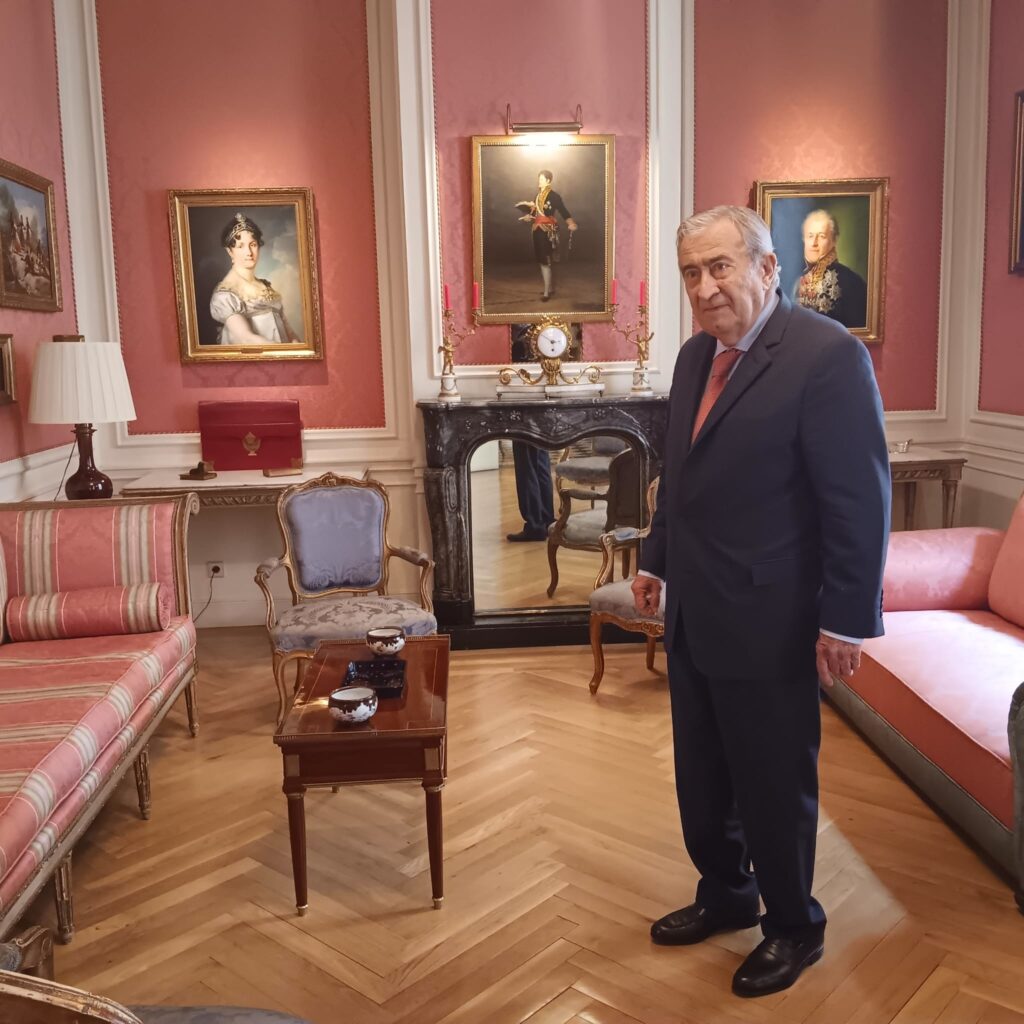
What do you think the role of the FHB should be at this time?
I think this is the moment when the UK’s exit from the EU has been a failure, a mistake. I can’t understand how David Cameron can be rewarded with a ministerial appointment, even though he caused this situation in an attempt to strengthen his position in his Party. I have the feeling that the UK has to recover from the exit from the European Union. Britons voted to leave, leading Cameron to resign. I think he will not go down in history as a great president, but that is for the British public to decide.
Given Brexit has already happened, the UK and Spain should make sure to improve relations between the two countries. This used to happen through the EU, which is why the bilateral relationship is more important than ever. Hopefully the Gibraltar border question will soon be resolved, allowing trade and economic relations to improve even more. Ultimately, it’s up to us to respect the UK’s decision and adapt to it.
How do you think the UK has evolved since your time there?
The UK has been very present in my life, hence my interest in FHB. You have to bear in mind that my father was a diplomat in England for 30 years. I used to visit him very often and there are many things I envy in the UK. I find British democracy to be first class, for example, even if it’s not currently at its prime. The current PM, who is extremely well prepared, doesn’t have an easy task in his hands and faces an equally well-prepared Labour opponent. In any case, international priorities should not be affected by national misfortunes. For example, we think it is going to be very difficult for Spanish diplomat to explain the change in stance towards Catalonia. A group of retired diplomats have published a letter in which we focus on the problem faced by diplomats abroad. How do you explain to a foreign interlocutor that you’re doing all this for seven votes. I remember vividly that a French diplomatic friend of mine was scandalised by the fact that Aznar had handed over education to the autonomous regions. He told me: this is the beginning of the end.
You have been a leader in many activities and you have already told us that you have been very lucky, but is it difficult to bear direct responsibility for so much heritage?
I certainly consider myself to be a lucky person, but I don’t find the responsibility that difficult. If you like something, you tend to do it well. When I enjoy this house the most is when someone comes to see it and says how beautiful it is… that is my encouragement for putting all the effort into maintaining it. Among other things because I believe that Spain should take care of its history and we need elements which can serve as reminders of some of the most important moments and characters in Spanish history. There is an individual responsibility and it is not that heavy to carry. I am lucky to also have three brothers who help me to maintain this heritage on the board of trustees and who are always extremely supportive. Being conscious and aware of what one has inherited and what one has to do in life isn’t difficult. In fact, it is also something that adds positively to your work. In Spain there is a monarchy, fortunately, and this situation isn’t a problem, it is something that enriches our lives.
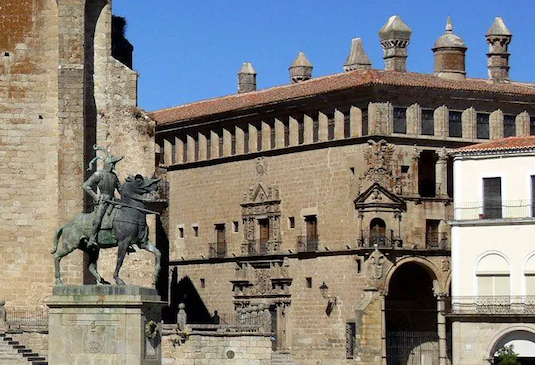
All the more if your direct predecessors go back all the way to the 16th century?
We go back to Álvaro de Bazán, the first Marquis of Santa Cruz, a title granted by Philip II. He was the most important admiral in the battle of Lepanto against the Turks. He prepared the Armada under the orders of Juan de Austria but died just before the battle. Álvaro was born in Granada and moved from near Valdepeñas to Viso del Marqués, where one of the two archives of the Navy is kept and leased for one peseta a year. His father had bought land in that area because the Catholic Monarchs and later Philip II asked their admirals and men of the court to buy land that belonged to military orders. Álvaro Sr. and his son bought the land, and the son built the palace.
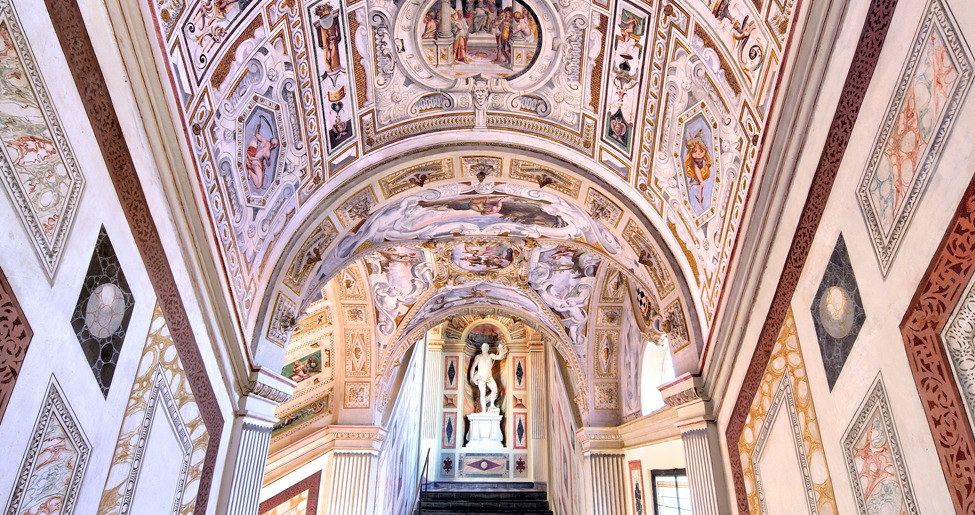
How would you sum up what has happened to you from the 1st to the 15th Marquis?
There have been many different Marquises, and many can be remembered in the portraits hanging in this house, but there is a bit of everything. Some were sailors, others were politicians… each Marquis has always stood out close to Royal Courts.
How would you assess the relationship between the Spanish and British monarchies?
The relationship between the two monarchies is excellent, for logical reasons. Both are countries parliamentary monarchies, with royals families united by blood and friendship, as well as a preeminent role in European history.
At last, the path is now set for the 16th Marquis of Santa Cruz.
Yes, although times change and one is forced to adapt. I have been very lucky with my son – who has just got married. He got married at 40 when I got married at 20, so yes, times have changed.



